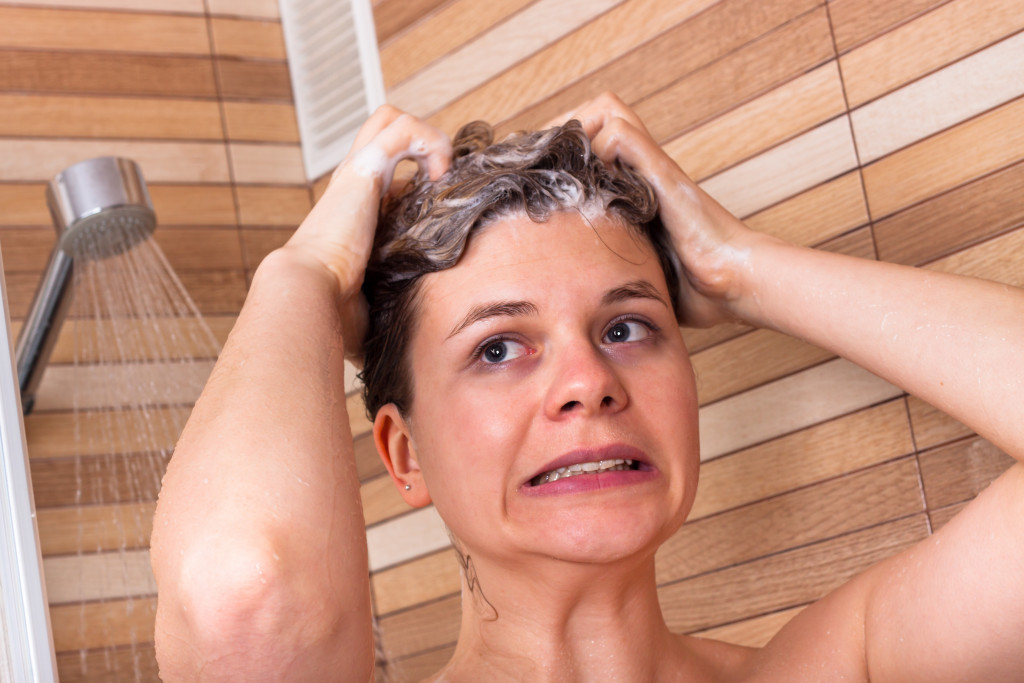Ask a group of fitness enthusiasts what they like doing after working out. The two most common answers will most likely be either stretching or taking a shower. Now ask what kind of showers they like. That’s where you’ll find some differences. Besides cleaning the sweat during showers, there are several benefits to showering after working out. Especially for fitness enthusiasts, both hot and cold showers have immediate desirable effects on the muscles that make them such a necessity.
However, the question remains, which one is the most appropriate type of shower after workouts? Hot or cold? Below we discuss some points surrounding it.
Cold Showers
When it’s hot and humid, nothing feels quite better than a cold shower. But after a workout, a cold shower feels twice as refreshing. Here are a few benefits to having a cold shower and why you should consider it.
It Prevents Itches and Rashes
Your sweat (and other people’s!) gets on gym equipment that ultimately rubs back against your skin. This usually results in other allergens and microorganisms getting in contact with our skin, leading to itches and rashes. Fortunately, taking a cold shower immediately after working helps prevent that, reducing the potential of terribly itchy skin even after using public gym equipment.
It Wakes You Up
Try splashing your face with cold water first thing in the morning, and you’ll understand the jolt it gives you. Cold showers are great in the morning to freshen you up and really awaken your senses. You’ll become more alert, and your heart rate is going to pump up, giving you that needed boost, especially if you’re not a jolly morning person. This is of benefit since many people tend to feel sleepy after going to the gym.
It Increases Blood Circulation and Reduces Muscle Soreness
As cold water hits the body, it cools down and tightens the external layer of your body. Because of this, the blood vessels in deeper tissues start to work faster to maintain your ideal body temperature. This then results in lesser inflammation, which in simple terms, means your muscles will less “flush” the lactic acid that has built up in your muscles- which then results in a better feeling.
It Does Not Dry Out Your Skin and Hair
Although research on the effects of cold water on the skin and hair is limited, there is plenty of anecdotal evidence of its benefits. For one, as opposed to hot water, taking cold showers does not dry out the skin and hair of its natural oils. This means hair and skin can be stronger and healthier.

Hot Showers
But what about hot showers? Surely there are benefits to having one as well. Well, here’s what happens when you take hot showers.
It Helps Clear Your Clogged Nose
If you exercise on a freezing day, you’ll often find that your nose gets clogged. Taking a hot shower after can help clear your nose, similar to how eating hot wings can do the same. The steam coming from the hot shower can help open your airways and clear your nasal passages. The next time a cold day wakes you up with a clogged nose, try a hot shower.
It Can Clear Out Your Blemishes
Now, this may sound contradictory to our statement earlier, but by taking a hot shower, you can actually help release trapped sebum and dirt from your skin. This is why many skincare routines suggest starting with warm water to “open up” the pores. This, along with a cleanser that’s apt for your skin type, can help you cleanse your skin and, in effect, clear out blemishes.
It Helps Your Muscles Relax
Everyone feels tired after a long hard day, with most of their muscles being sore from working for more than eight hours. A hot shower can soothe even muscle pain from a workout. This is because a hot shower can alleviate muscle pain by relieving the tension that happens when your muscles get bunched up.
They are great for recovery, and if you want to have one installed at home, it’s best to call for professional plumbing services to have it done. And once you have that, you can take a quick dip at night to soothe your aching muscles.
All in all, hot versus cold showers should not be seen in black and white only. There are advantages to both, and choosing one over the other depends on what your body needs. As long as you make informed decisions or if an expert gives you specific advice, your entire training regimen will not be a risk to your health.

